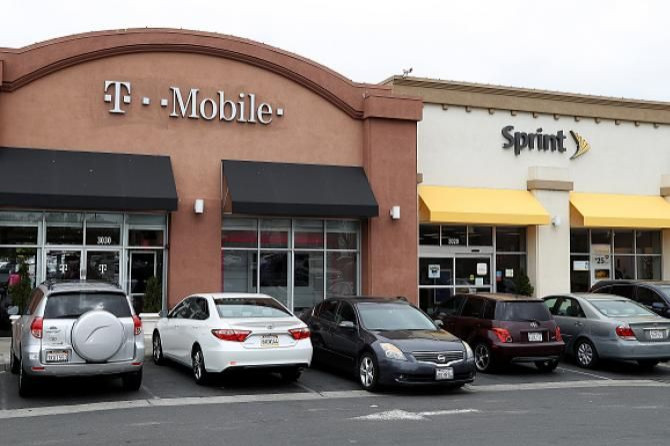T-Mobile, Sprint Merger In Doubt As FCC Looks Into Massive Fraud

Federal government approval of the $26.5 billion merger between T-Mobile US Inc. and Sprint Corporation, the third and fourth largest U.S. wireless carriers, remains in limbo, partly because the three Republican commissioners on the five-man board of the U.S. Federal Communications Commission (FCC) haven't gotten around to approving the deal.
This inaction might have something to do with a new scandal involving Sprint, which is falsely claiming payments from the federal government over subsidized Lifeline phone service for 885,000 subscribers that aren't not using the service.
FCC commissioner Ajit Pai blasted Sprint for claiming the refund from the federal government.
"It’s outrageous that a company would claim millions of taxpayer dollars for doing nothing. This shows a careless disregard for program rules and American taxpayers,” said Pai.
Geoffrey Sparks, one of the two Democrat commissioners, now wants to delay the FCC’s vote on approving the deal. Media reports say Sparks became upset after hearing reports Sprint had claimed payments over the subsidized Lifeline phone service.
Pai, a Republican, isn’t happy at the news of Sprint’s action but has still signified his support for the deal. He now seems more concerned with the fact the three Republican FCC commissioners haven’t approved the merger.
Another Republican, Michael O’Rielly, said he'd voted but didn't say if he voted for the deal. The remaining Republican, Brendan Carr, hasn't voted but did issue a statement supporting the deal.
FCC commissioners don't vote as a group gathered in one place. Instead, they vote electronically using a shared computer system. A vote by all three Republicans in favor of the deal would have activated a deadline for action.
Sources at the FCC cited by media said the deadline period hasn’t commenced. This means there hasn’t been a third positive vote. This outcome suggests Carr hasn't voted yet or that O'Reilly didn't vote favor of a deal.
A "No" vote from only one of these three Republicans will kill the deal since the other two FCC commissioners, both Democrats, voted against the merger. The lack of clarity also means the FCC won't finish reviewing the deal until October as mandated by its policies.
Some analysts claim the deal's approval might also have something to do with T-Mobile and Sprint agreeing to close their deal only after a verdict is reached in a multistate lawsuit opposing the merger. Trial is set for early December.
Led by California, the 16 states opposing the merger say combination two of only four national wireless carriers will decrease competition and increase prices for consumers. On the other hand, the deal's supporters claim it will quickly bring super-fast 5G mobile networks and create a stronger rival to industry leaders AT&T Inc. and Verizon Communications Inc.
The FCC formally recommended approval of the merger on Aug. 14. When the merger was first announced in 2017, its opponents have lept saying the deal’s biggest flaw is it will deprive the U.S. of two telecom carriers in an industry comprising only four firms.
© Copyright IBTimes 2025. All rights reserved.





















